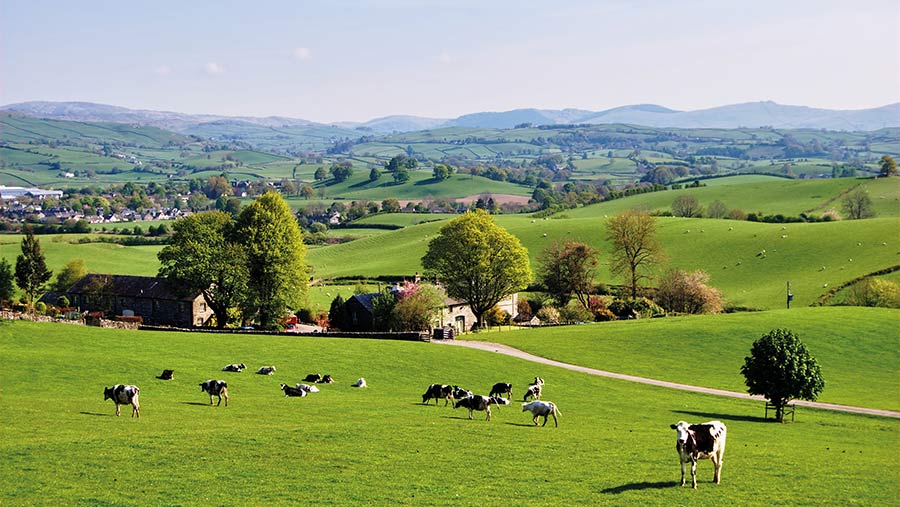Opinion: There’s much to admire in Rock report on tenancies
 © Kevin Eaves/Adobe Stock
© Kevin Eaves/Adobe Stock I don’t know about you, but I scarcely had time to get my tongue around the name of the last secretary of state at Defra before he was replaced by a lady whose name is, at least, more familiar.
Therese Coffey is an East Anglian MP who represents John Gummer’s (now Lord Deben’s) old Suffolk seat and who, by all accounts, loves a fat cigar and karaoke.
I’ve never met the lady, but she sounds like a barrel of fun.
See also: Rock report recommendations on farm tenancies
More importantly, she represents a rural constituency and has previously served at Defra, as a junior minister. So she should be able to hit the ground trotting, if not running.
We must hope so because there’s a lot to do, sorting out Environmental Land Management – the policy with the longest gestation period in history – and protecting Defra’s budget being the most important.
But there are many other matters that deserve her urgent attention; one of which is farm tenancy reform.
A report, commissioned by George Eustice (remember him?) into the state of tenant farming – slipped out during the musical chairs at Westminster – called for radical reform of the sector.
Chaired by Baroness Kate Rock, it has been welcomed by all tenancy stakeholders, although a little less warmly by landowners and agents, who came in for some legitimate criticism.
Nor did Defra escape unscathed…
The Baroness proved an effective chairwoman, apparently admired by all who participated.
Her report concluded that there was insufficient collaboration between landowners, tenants and agents, and pointed at agents as the main guilty parties.
“Good collaboration is the exception rather than the rule,” she said, and called for regulation of agents to correct this.
Farm business tenancies are generally far too short, she said, and this was detrimental to tenants’ profitability and the environment.
No tenant is going to undertake expensive environmental enhancement on land over which he or she has only a few years’ security.
Furthermore, tenants are worried they may lose their access to land if the landowner decides to plant trees on it.
There is a need for a tenant farmer ombudsman to adjudicate the justice of such cases and to offer some protection to tenants.
There is also an urgent need for one of the Defra team of ministers to include tenants in their portfolio of responsibilities.
The so-called Rock report highlights the fact that Defra personnel do not differentiate types of land holding, and often treat all farmers as if they were owner-occupiers.
There is little understanding in the department of the complexities of land occupation. Policies need to be tenant-proofed, it says.
Further, the report calls for greater flexibility in dealings between landowners and tenants.
Most agreements are based on outdated standards that may have been appropriate when they were written, perhaps 70 years ago, but are too restrictive and inappropriate today.
There’s more, much more, and most agree it could, maybe should, become the blueprint for reform of farm tenancy law.
Such legislative change would recognise the importance of at least one-third of UK farmers at a time when production and care for the environment are subject to increasing scrutiny.
Ms Coffey should act on the report decisively, and not leave it on the shelf just because she didn’t commission it.

